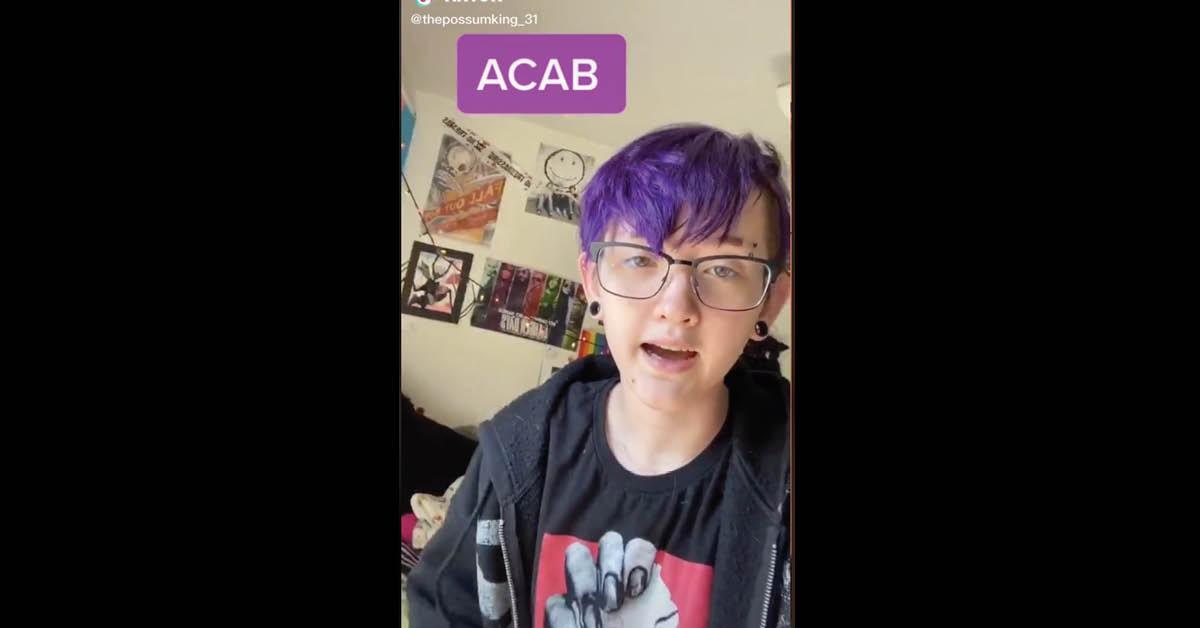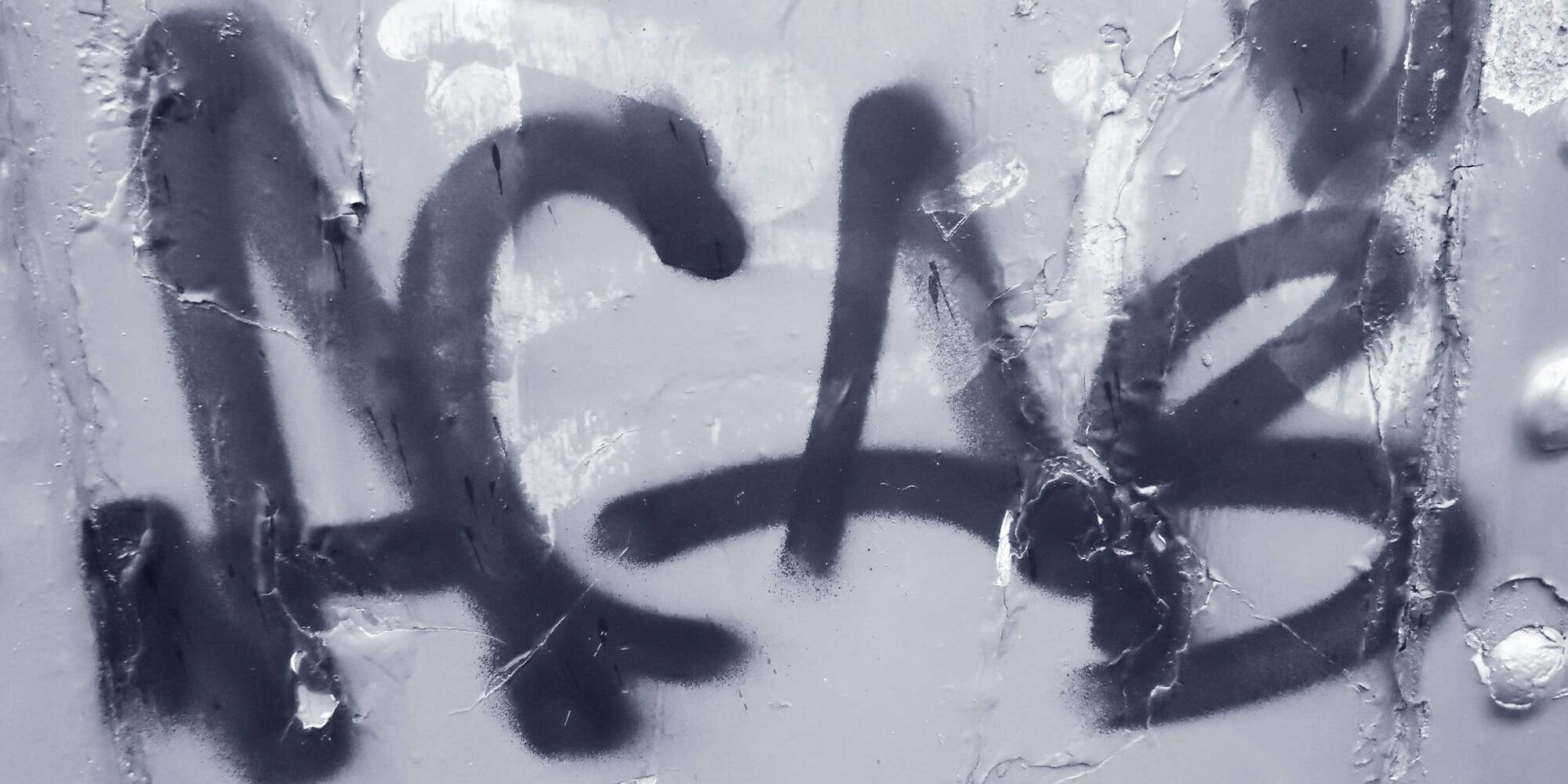Have you ever stumbled across the acronym ACAB and wondered what it means? If you're scratching your head or Googling furiously, you're not alone. ACAB has become a buzzword in recent years, popping up in protests, graffiti, memes, and even casual conversations. But what exactly does ACAB mean, and why does it matter? Let's dive deep into the world of this controversial phrase and uncover its significance.
ACAB might sound like just another random acronym, but it carries a heavy weight of meaning. The phrase has sparked debates, inspired movements, and even fueled tensions between communities. Whether you're hearing it for the first time or you've seen it plastered across walls in your city, understanding ACAB is crucial in today's socio-political climate.
As we explore the meaning behind ACAB, we'll also look into its origins, how it's used today, and why it's so polarizing. By the end of this article, you'll have a clearer picture of what this phrase represents and how it fits into broader discussions about justice, authority, and activism. So, buckle up and let's get started!
Read also:Sophie Rain Fapello The Rising Star Redefining Music And Fashion
Table of Contents
- Origins of ACAB
- What Does ACAB Mean?
- The Rise in Popularity
- How Is ACAB Used?
- Controversy Surrounding ACAB
- The Impact on Society
- ACAB and Politics
- Law Enforcement's Perspective
- Alternatives to ACAB
- The Future of ACAB
Origins of ACAB
You might be wondering where ACAB even came from. Like many phrases that gain traction over time, its roots are a bit murky. Some trace it back to the punk rock scene in the UK during the late 1970s and early 1980s. Bands like Crass and The Clash were known for their anti-establishment lyrics, and ACAB became a rallying cry for those disillusioned with authority.
Others argue that the phrase gained steam in prison cultures, where inmates used it as a way to express frustration with the legal system. Regardless of its exact origin, one thing is clear: ACAB has always been tied to a sense of rebellion against perceived injustices. Over the decades, it's evolved and adapted, finding new audiences and contexts.
Early Usage
Back in the day, ACAB wasn't exactly mainstream. It was more of an underground slogan, whispered in circles of activists and radicals. But as social movements gained momentum, so did the phrase. By the 2010s, it had become a global phenomenon, appearing in protests from Hong Kong to the United States.
Let's break it down: ACAB stands for "All Cops Are Bastards." Simple, right? But don't let the brevity fool you. This four-letter acronym packs a punch, and its meaning has sparked intense debates. Some see it as a powerful statement of resistance, while others view it as divisive and harmful.
What Does ACAB Mean?
At its core, ACAB is a critique of law enforcement. It challenges the notion that police officers are inherently good or trustworthy. For many, the phrase represents a deep-seated distrust of authority, fueled by experiences of discrimination, abuse, or corruption. But what does it mean on a broader scale?
ACAB isn't just about individual officers; it's about systemic issues within policing. It questions the role of law enforcement in society and whether they truly serve and protect all communities equally. For activists, ACAB is a call to action, urging people to demand accountability and reform. For critics, it's seen as an unfair generalization that discredits the hard work of honest officers.
Read also:Renn Hawkey The Rising Star In Music And Beyond
Breaking It Down
Here's the thing: ACAB isn't just a slogan. It's a symbol of a larger conversation about power, privilege, and justice. Let's take a closer look at what it means:
- All: This suggests that the critique applies universally, not just to specific cases or individuals.
- Cops: Refers to law enforcement officers, but also extends to the broader system they represent.
- Are: A straightforward assertion, leaving little room for ambiguity.
- Bastards: A strong word that conveys distrust, anger, and frustration.
While some might dismiss ACAB as mere rhetoric, it reflects real concerns about policing and its impact on marginalized communities. Understanding the phrase requires acknowledging the experiences and voices of those who feel betrayed by the system.
The Rise in Popularity
So, how did ACAB go from being a niche slogan to a global buzzword? The answer lies in the power of social media and the rise of activist movements. Platforms like Twitter, Instagram, and TikTok have given people a megaphone to amplify their voices, and ACAB has become a rallying cry for those demanding change.
Events like the Black Lives Matter protests in 2020 brought ACAB into the spotlight. As millions took to the streets to protest police brutality, the phrase became a unifying symbol. It appeared on banners, t-shirts, and murals, spreading awareness and sparking conversations.
Why Now?
The timing couldn't be more perfect. In an era where trust in institutions is at an all-time low, ACAB resonates with those who feel disillusioned by the status quo. It taps into a shared sense of frustration and calls for action. But its popularity isn't without controversy. Some argue that its widespread use has diluted its original meaning, turning it into a trendy hashtag rather than a serious critique.
How Is ACAB Used?
ACAB isn't just a phrase you'll find in protests; it's used in a variety of contexts. From graffiti on city walls to memes on social media, it's become a versatile tool for expressing dissent. Let's explore some of the ways people use ACAB:
- Graffiti: ACAB is often spray-painted on buildings as a form of street art and protest.
- Memes: The internet loves a good meme, and ACAB has inspired countless creative takes.
- Protests: It's a common chant at demonstrations, symbolizing solidarity and resistance.
- Music: Bands and artists incorporate ACAB into their lyrics to challenge authority.
While these uses might seem lighthearted, they carry significant weight. Each time someone shares an ACAB meme or paints it on a wall, they're contributing to a larger conversation about justice and accountability.
Controversy Surrounding ACAB
Of course, with great power comes great controversy. ACAB has sparked heated debates, with critics arguing that it's divisive and harmful. Some law enforcement agencies have labeled it as hate speech, claiming it undermines trust and cooperation between police and the communities they serve.
Others point out that ACAB can alienate allies who might otherwise support reform efforts. By painting all officers with the same brush, it risks alienating those who genuinely want to make a difference. However, proponents argue that the phrase is necessary to highlight systemic issues that are often ignored.
The Argument Against ACAB
Let's hear from the other side. Critics of ACAB say it oversimplifies complex issues and perpetuates stereotypes. They argue that not all cops are corrupt or abusive, and that painting them as "bastards" does more harm than good. Some even worry that ACAB could incite violence or retaliation against officers.
But here's the thing: both sides have valid points. The challenge lies in finding a balance between critiquing the system and respecting individual officers who do their jobs with integrity. It's a delicate dance, and one that requires open dialogue and mutual understanding.
The Impact on Society
Love it or hate it, ACAB has left a lasting impact on society. It's forced people to confront uncomfortable truths about policing and justice. Whether you agree with the phrase or not, it's undeniable that it's sparked important conversations about power, privilege, and accountability.
In some ways, ACAB has become a lightning rod for change. It's pushed governments, law enforcement agencies, and communities to examine their relationships and work towards meaningful reform. But it's also highlighted the deep divisions that exist in society, particularly along racial and socioeconomic lines.
Measuring Progress
So, has ACAB made a difference? That depends on who you ask. Some point to policy changes and increased accountability as evidence of progress. Others argue that more needs to be done to address systemic issues. What's clear is that ACAB has kept the conversation alive, ensuring that these issues remain in the public eye.
ACAB and Politics
It's no surprise that ACAB has entered the political arena. Politicians on both sides of the aisle have weighed in on the phrase, using it to advance their agendas. For some, ACAB represents a threat to law and order, while for others, it's a call to action for justice and reform.
But politics can be tricky. When ACAB becomes a political football, it risks losing its authenticity. Instead of being a grassroots movement, it can be co-opted by those seeking to score political points. That's why it's important to remain vigilant and ensure that the phrase stays true to its original meaning.
Law Enforcement's Perspective
Let's not forget the people on the other side of the equation: law enforcement officers. For many, ACAB is a deeply personal issue. They see it as an attack on their profession and a dismissal of their hard work. It's a reminder of the challenges they face every day, often with little recognition or support.
But here's the thing: ACAB isn't about individual officers; it's about the system they represent. By focusing on systemic change, the phrase aims to create a more just and equitable society for everyone, including those in law enforcement.
Building Bridges
Ultimately, the goal should be to build bridges, not walls. ACAB can serve as a starting point for dialogue, encouraging law enforcement and communities to work together towards common goals. It's about finding solutions that benefit everyone, not just one side.
Alternatives to ACAB
If ACAB feels too extreme or divisive, there are alternatives that still address the same issues. Phrases like "Reform Policing" or "Hold Cops Accountable" offer a more nuanced critique without the same level of controversy. They focus on specific actions and outcomes, rather than blanket statements.
Of course, these alternatives might not carry the same emotional weight as ACAB, but they can still be effective in sparking change. The key is to find language that resonates with your audience while still conveying the message you want to share.
The Future of ACAB
So, what does the future hold for ACAB? Will it continue to be a rallying cry for activists, or will it fade into obscurity? Only time will tell. What's certain is that the issues it represents won't disappear anytime soon. As long as there are concerns about policing and justice, there will be a need for phrases like ACAB to keep the conversation alive.
But here's a thought: maybe the future of ACAB lies not in its words, but in its actions. Instead of focusing solely on critique, we can channel the energy behind ACAB into concrete solutions. By working together, we can create a world where trust, accountability, and justice are the norm, not the exception.
What Can You Do?
So, what's your role in all of this? Whether you're a supporter, critic, or somewhere in between, you have the power to make a difference. Here are a few ways to get involved:
- Stay informed about issues related to policing and justice.
- Engage in respectful conversations with people who have different perspectives.
- Support organizations working towards reform and accountability.
- Use your voice to advocate for change, whether through activism, art, or everyday conversations.
Remember, change doesn't happen overnight. It takes persistence, courage, and a willingness to listen and learn. By embracing the spirit of ACAB—whatever that means to you—you can help shape a better future for all.
Conclusion
ACAB might just be four letters, but it carries a world of meaning. It's a


